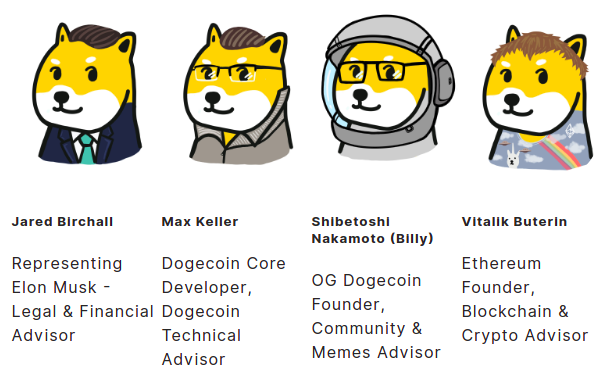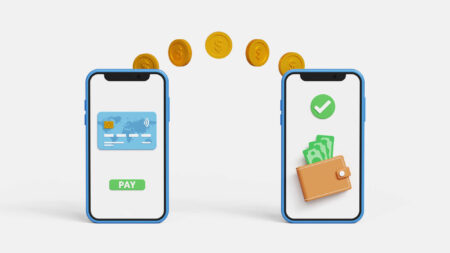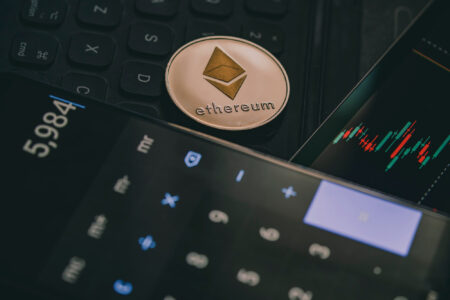Originally conceived in December 2013 as a fun cryptocurrency and parody of Bitcoin as well as the fast-growing number of complementary currencies, the Shiba Inu-branded coin still holds its own in the top 10. This article takes a look at how Dogecoin came to be.
$DOGE is the "fun and friendly internet currency," referring to its origins as a joke. Dogecoin was created by Billy Markus, an IBM programmer, and Jackson Palmer, an Adobe programmer. The fun cryptocurrency was intended as a parody of Bitcoin.
Initially designed to hold 100 billion coins, founder Jackson Palmer's decision to remove the limit was made public on February 2, 2014. Since then, Dogecoin has had a clear inflationary character. As of 2015, 5.256 billion new $DOGE are created every year, which corresponds to an inflation rate of 5.3% and will continuously decrease. It uses the same proof-of-work algorithm as Litecoin, in contrast, the time to create a new block is only 1 minute.
Creating awareness for cryptocurrencies
In 2013, the vision for the future of cryptocurrencies seemed relatively clear: a peer-to-peer alternative to cash that, through decentralization, eliminated the need to rely on financial institutions, which proved to be unscrupulous and often corrupt during the 2008 crisis. Bitcoin, which sparked the cryptocurrency movement in 2009, introduced real technical innovations to realize this vision.
At the time, the Australian entrepreneur and technologist hoped that a project like $DOGE could help drive awareness and innovation of the technology through the power of community. Two years later, its market value had entered the billions, prompting Jackson Palmer to write that cryptocurrencies had attracted "shark-like scammers and opportunists."
He complained that the industry was overrun by opportunists who wanted to make money instead of investing in the advancement of the technology. In light of this, he decided in 2015 to withdraw from any involvement in Memecoin and cryptocurrencies in general. He handed over the development to a trusted team of community members. After the meteoric rise in market capitalization in 2021, he once again confirmed in a tweet that he would not be back.
https://twitter.com/ummjackson/status/1415353984617914370
The year 2021 - Dogecoin's rapid growth.
Since October 2018, Elon Musk has officially become a cryptocurrency watcher and has been tweeting about $DOGE frequently since July 2020. Dogecoin which was previously trading below one cent, has jumped to 7 cents and has never dropped below $0.05 since. In mid-April, the price catapulted to $0.44, consolidated for a short period of time, only to reach a new all-time high of $0.74 right after.

With the price increase, the cryptocurrency attracted even more attention. Celebrities such as Snoop Dogg, Gene Simmons, and Kevin Jonas have also voiced their support for Dogecoin. The number of retailers accepting Dogecoin as payment is also growing. Hotel groups, restaurants and daily use stores are tapping into the new user base.
In March, Mark Cuban, the owner of the Dallas Mavericks announced he would accept Dogecoin as a form of payment. Fans could use it to buy merchandise at a discount and make cashless payments. Shortly after, the billionaire described the success of the campaign, as fans seemed to prefer Dogecoin for payments. Moreover, he promised that the Mavs will not sell a single token.
Dogecoin Foundation
After six years of stagnation, the foundation was reactivated in August 2021 and focuses on supporting the ecosystem. The foundation owns the Dogecoin brand and logo and will maintain them for the community. This means that it can continue to protect the brand and the community (under a very liberal license) can use it for Dogecoin-related memes, projects, and fun. - The Dogecoin Foundation has the community's back.
Not many people know that Jens Wiechers has been single-handedly fighting the misuse of the "Dogecoin" trademark under the banner of the Dogecoin Foundation since 2014, and at great personal expense. The trademark right had to be defended especially recently. Numerous attempts have been made to adopt the "Dogecoin" trademark in various jurisdictions.
Dogecoin Foundation Advisory Board

Dogecoin Foundation Advisors provide key insights into specific strategic areas. Ethereum co-founder Vitalik Buterin has joined the Foundation as a blockchain and crypto advisor, signaling that he will help shape the future of the former Memecoin. He has previously expressed his support for Dogecoin, adding that he would like to believe that Ethereum is also a Dogecoin in spirit, so even a collaboration between the two networks could be possible.
Tesla founder Elon Musk has been advising the team since 2019, and he is represented in the foundation by his legal and financial advisor Jared Birchall. A foundation with legal status that provides a structure to hire the full-time staff needed for such a process is key to the venture moving forward. Birchall is a former senior vice president at Morgan Stanley, serves on the Musk Foundation board and also manages Musk's family office. The executive will represent Musk's interests on the Dogecoin advisory board alongside Buterin, Dogecoin founder Billy Markus and core developer Max Keller.
"Currency for the people"
The Dogecoin Foundation is a non-profit organization founded to:
- Support the Dogecoin cryptocurrency through development and advocacy.
- Defend the Dogecoin brand to prevent abuse and fraud.
- To create a roadmap and governance for the future of Dogecoin.
The Dogecoin Foundation has existed as a non-profit organization in the U.S. since 2014, but recent developments around open source and the treatment of non-profits or charities in the cryptocurrency space, preclude the foundation from settling in the U.S. for the long term. Liechtenstein, on the other hand, is crypto-friendly, and as a member of the European Economic Area (EEA), it would give the foundation the flexibility it needs to work with other European organizations.

The Dogecoin Foundation's new manifesto was released on August 15 and proclaims the ambitious goal of developing "a currency for the people." The team's plans are nothing less than to turn the cryptocurrency, which started as a joke, into a viable payment method that can easily be used to buy a cup of coffee.
The team has revealed that new projects will be announced in the coming weeks, which should enable faster integration. Probably the biggest impact of the foundation will be its role in promoting project development. It will ensure that the cryptocurrency, which currently has a $38 billion capitalization, is pushed forward in the various areas.
Fractionalized Doge NFT reaches record high price spheres
The "Feisty Doge NFT" has temporarily become the highest valued NFT in the world with over $110 million. The painting was sold as an NFT back in June and achieved a high bid of $43,279 US at the time. The subject is part of a photo shoot with Kabosu, the same Shiba Inu featured on Dogecoin.
I've created the next step in $DOGE tokens - an NFT DOGE, a fractionalized piece from the Zora auctions a few months ago. The 100bil tokens are backed by the NFT in the @fractional_art contract.
Trade on sushiswap: https://t.co/mEStrplmi3 pic.twitter.com/0Uslp5qEta
— path.eth 🛡️ (@Cryptopathic) August 19, 2021
A resourceful NFT collector announced that he has divided the NFT into 100 billion tokens so that anyone can purchase a portion of the property. The tokens are traded under the ticker NFD and can be bought and sold on SushiSwap.The fractionalized NFT's market cap knocked Beeples Everydays off the top spot (69 million).




